Two research programmes of the Federal Office of Energy have published new calls. One of the call topics is a collaboration between the two programmes. Weiterlesen
As EU climate policy tightens, its Green Deal increasingly shapes Swiss energy and emissions through shared infrastructure – long-standing hydropower integration, electricity lines and gas pipelines –, Emissions Trading Systems (ETS) linkage and EU-wide clean fuel and CO2 regulations. Weiterlesen




 Noch keine Bewertungen
Noch keine BewertungenIf waste heat is continuously generated from an industrial process and steam is required at the same time to complete the process, the conditions are favorable for the use of a steam-generating heat pump. A team of researchers from the University of Applied Sciences of Eastern Switzerland has investigated the conditions for the success of this energy-efficient and climate-friendly form of heat supply. Weiterlesen




 Noch keine Bewertungen
Noch keine BewertungenA good battery has high energy density, short charging times, is safe to operate, and can withstand extreme temperatures. Solid-state batteries are a new generation of lithium-ion batteries that do not require liquid components and combine many of these properties. An international research consortium, including the Swiss Federal Laboratories for Materials Science and Technology, or Empa, is working on the development of anode-free solid-state batteries in combination with thin-film technology. Potential application areas include the industrial Internet of Things sector, with additional potential uses in mobile areas such as drones, robotics, and aerospace.
Read the specialised article: „Batteries Reduced to the Essentials„.
Dr. Benedikt Vogel, science journalist, for the Swiss Federal Office of Energy (SFOE).
Image: EMPA




 Noch keine Bewertungen
Noch keine BewertungenAs the world shifts toward a more sustainable future, the role of finance in this transition has never been more critical. A project from ETH Zurich and the University of Zurich, supported by the Swiss Federal Office of Energy and published in February 2025, explored how Swiss private investors perceive and engage with sustainable finance. Weiterlesen




 Noch keine Bewertungen
Noch keine BewertungenWhat are the best policy measures to decarbonise Switzerland? A stand-alone carbon tax? A combination of taxes, subsidies, bans and standards? The DECARB project explores these questions and shows the advantages of combining measures to reach climate neutrality.
Academics typically recommend the introduction of a carbon tax to shift the economy away from fossil fuels and mitigate climate change. However, this policy proposal usually faces strong opposition from industry and the public, even if the revenues are fully redistributed.
In the DECARB project, a team of researchers investigated whether the use of other measures such as subsidies, standards or bans could facilitate the decarbonisation of Switzerland to an extent compatible with its goal of climate neutrality by 2050. In particular, it looked at how combining these measures into „instrument mixes“ might be superior to using just one of them, including the carbon tax. Overall, its findings suggest that mixes offer significant potential to advance climate policy.
DECARB is a research project sponsored by the EES programme and coordinated by the École Polytechnique Fédérale de Lausanne (EPFL).
The project addresses the colossal challenge of decarbonising the Swiss energy system, including transport, residential buildings, and industry. Given that individual policy measures all have shortcomings, the project investigates how mixes of measures could enhance climate policy. Thanks to a pluri-disciplinary approach, DECARB identifies desirable mixes that would allow Switzerland to reach climate neutrality by 2050.
First, a review of the academic literature shows that there are several market failures, barriers to decarbonisation and policy constraints that justify the use of instrument mixes rather than a stand-alone carbon tax. While the desirable mixes differ across sectors, given the different target actors and technologies, some carbon tax is found to play a key role in all of them.
Second, using a mathematical model of the Swiss economy, the researchers show that the deep decarbonisation induced by the mixes has a negligible impact on gross domestic product (GDP), in the order of 1‰. When complementary instruments are included in the policy landscape, the carbon tax rate required to achieve an ambitious emissions target can be divided by about two. On the other hand, a stand-alone carbon tax allows for the highest rebate to households among the scenarios considered.
Third, using an online survey, the team provides evidence that Swiss citizens have a strong preference for instrument mixes rather than a stand-alone carbon tax. Language region, number and type of cars owned, and perceived threat of climate change are found to be important predictors of instrument preferences.
Full report: Cocker, F., Thalmann, P., Vielle, M., Vöhringer, F., Weber, S. (2024). DECARB – Mixes of policy instruments for full decarbonisation by 2050. Project funded by the Energy-Economy-Society (EES) research programme of the Swiss Federal Office of Energy (SFOE), Bern.
Authors: Fleance Cocker (EPFL), Philippe Thalmann (EPFL)
Shutterstock: ID: 2463945033; Doidam 10




 Noch keine Bewertungen
Noch keine BewertungenInfrastructure systems such as the electricity grid are regularly maintained to ensure reliable operation. Wear and damage must be recognised at an early stage. A team of scientists from the Swiss Federal Institute of Technology (ETH) in Zurich, in collaboration with the national grid operator Swissgrid, has investigated the possibilities of predictive maintenance of the electricity grid. The aim is to automate fault detection and classification with the help of machine learning models. Weiterlesen




 Noch keine Bewertungen
Noch keine BewertungenSWISS-JAPAN ENERGY DAYS 2024: COLLABORATION ON BREAKTHROUGH INNOVATIONS FOR FUTURE SUSTAINABLE ENERGY
The Swiss-Japan Energy Days 2024 conference, scheduled for September 10-11, 2024, at ETH Zürich and Swissnex in Japan, is set to address the pressing challenges in the energy sectors of both countries. Dr. Felix Moesner, Swiss Consul & CEO of Swissnex in Japan, discusses the importance of this event and its anticipated impact. Weiterlesen




 Noch keine Bewertungen
Noch keine BewertungenThe first call for proposals of the wind energy research programme is being issued jointly with the Energy – Economy – Society (EES) programme. The aim is to promote the engagement of local stakeholders in order to foster the deployment of wind energy in Switzerland accounting for evolutions in the regulatory framework conditions.
The call for proposals is a one-stage process; the submission deadline is September 12. All the necessary information can be found here: Calls for tenders (admin.ch) and on the pages of the research programmes.
Katja Maus, Energy Research and Cleantech Section, Swiss Federal Office of Energy
Picture: Suisse Eole, Juvent ©Corinne Aeberhard




 Noch keine Bewertungen
Noch keine BewertungenThe electrification of local public transport is in full swing. Building battery-operated buses and trolleybuses that combine passenger comfort with low power consumption is technically challenging. Research institutions such as the Swiss Federal Institute of Technology (Eidgenössische Technische Hochschule/ETH) in Zurich are supporting manufacturers with important findings such as the optimal use of batteries, for example. A current research project aims to improve the energy supply for heating, ventilation and air conditioning. Weiterlesen




 Noch keine Bewertungen
Noch keine BewertungenKontakt
Bundesamt für Energie
Pulverstrasse 13
3063 Ittigen
Postadresse:
Bundesamt für Energie
3003 Bern
Telefonnummern:
Hauszentrale +41 58 462 56 11
Pressestelle +41 58 460 81 52
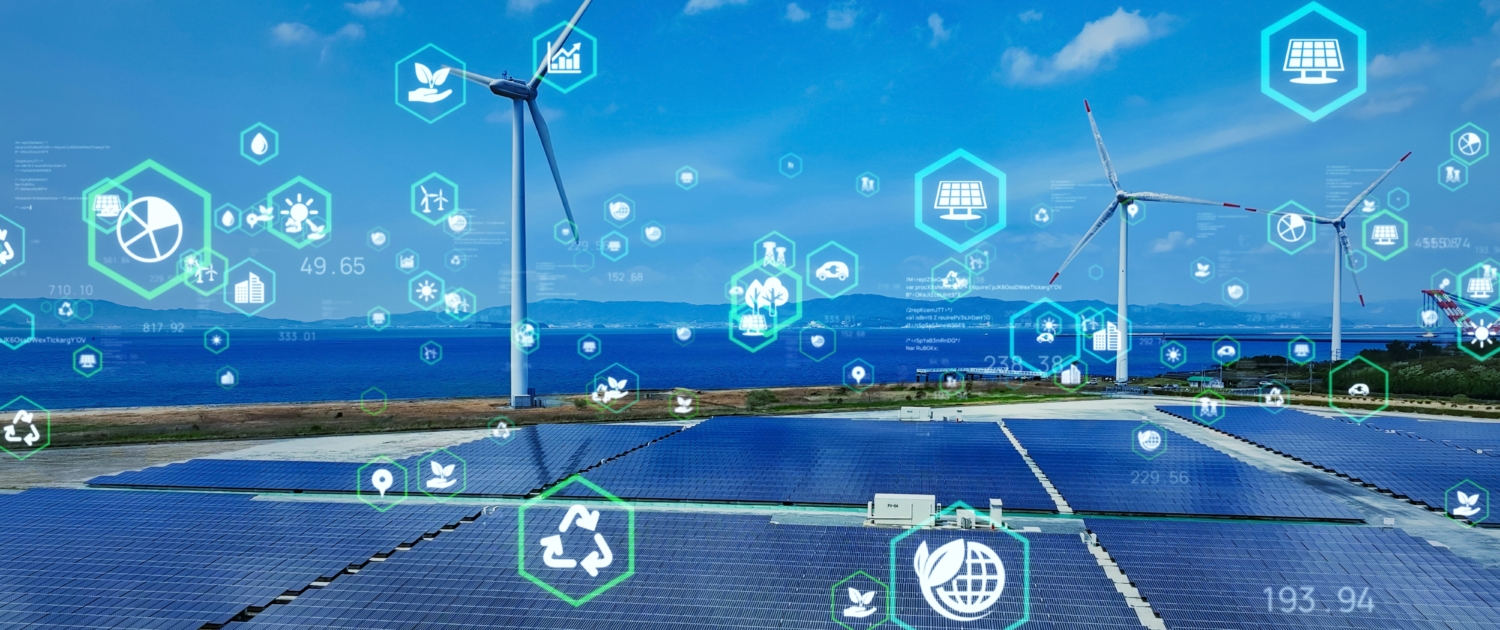 Shutterstock
Shutterstock Shutterstock
Shutterstock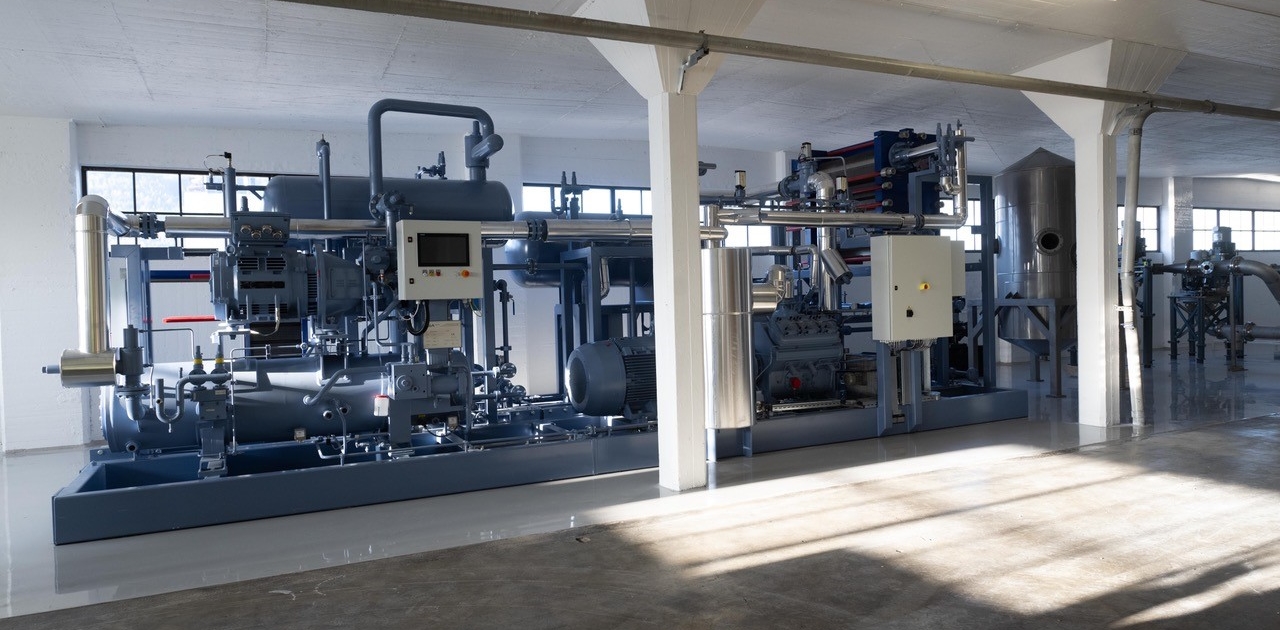 Aneo Industry
Aneo Industry  EMPA
EMPA Shutterstock
Shutterstock shutterstock
shutterstock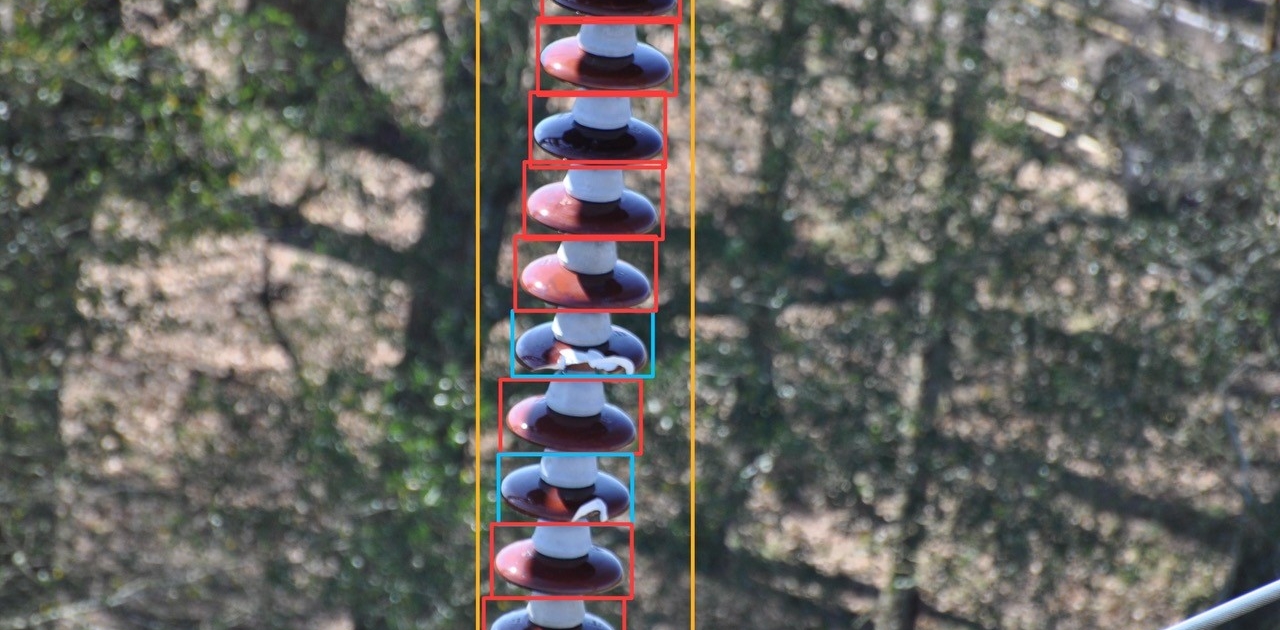 EPRI
EPRI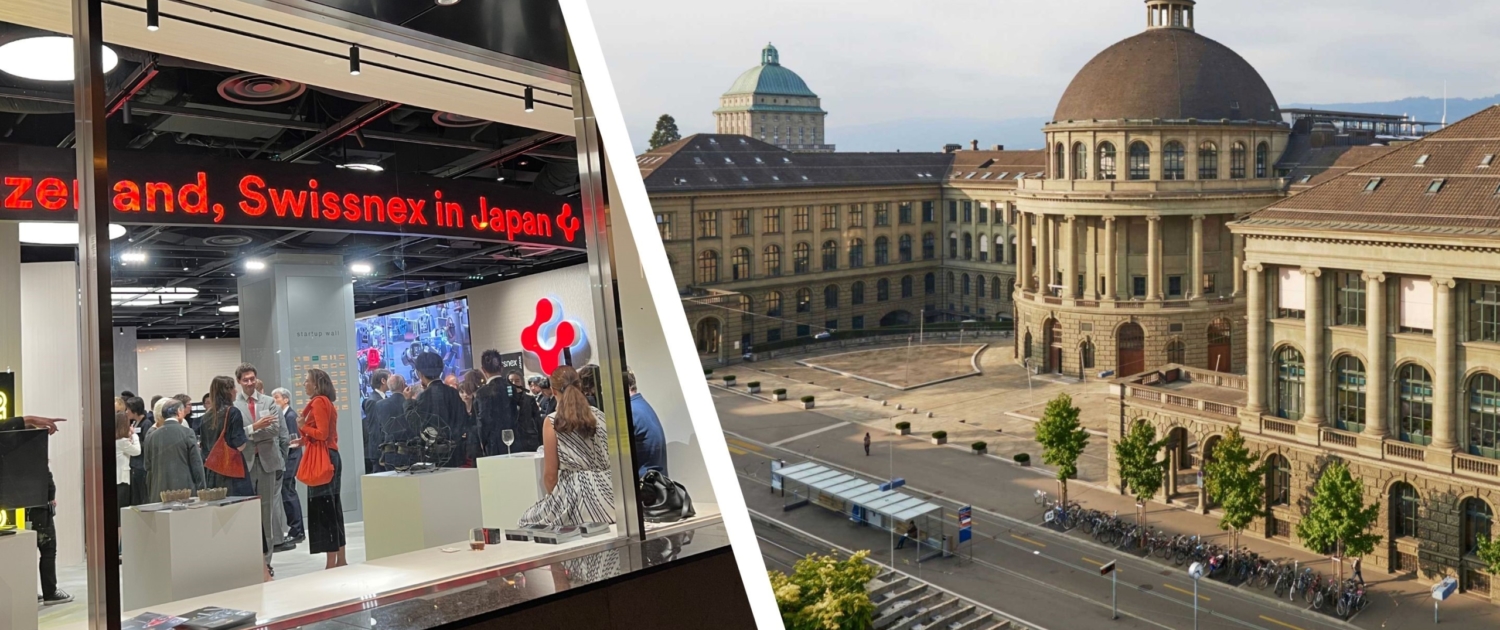 ©Swissnex Japan
©Swissnex Japan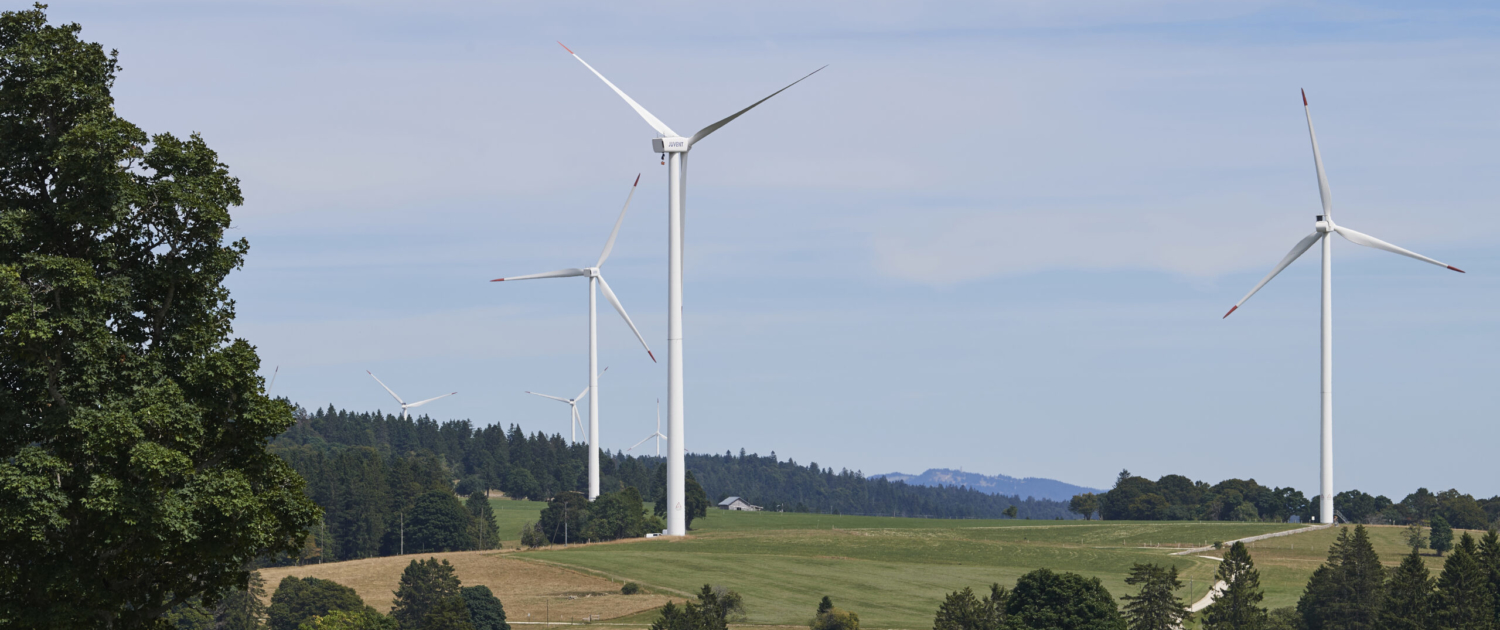 Suisse Eole
Suisse Eole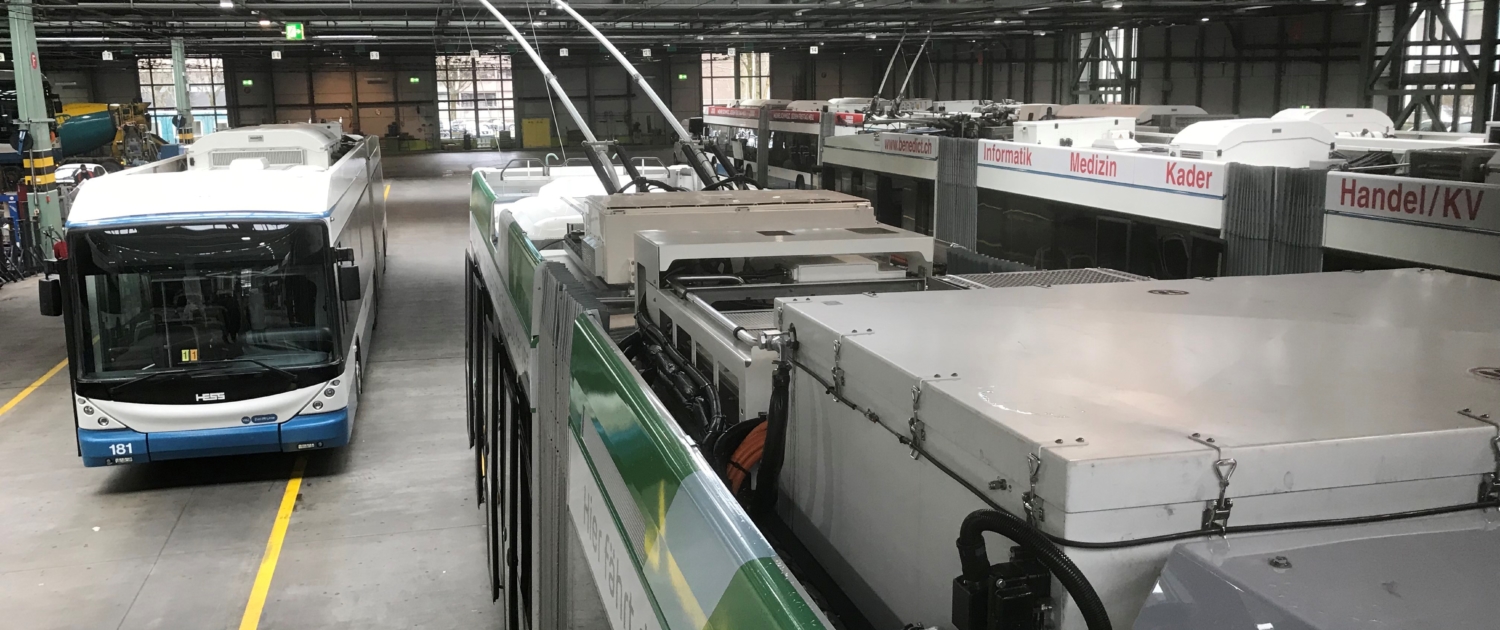 Benedikt Vogel
Benedikt Vogel